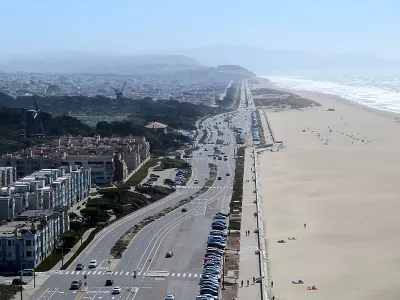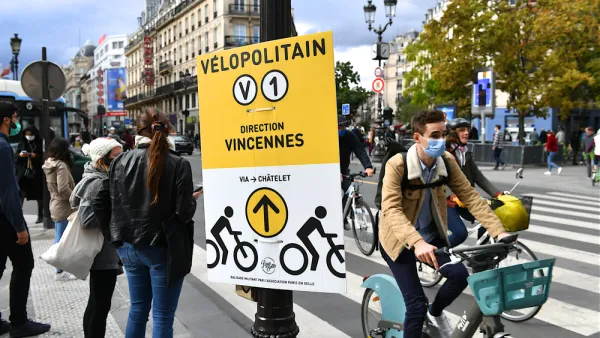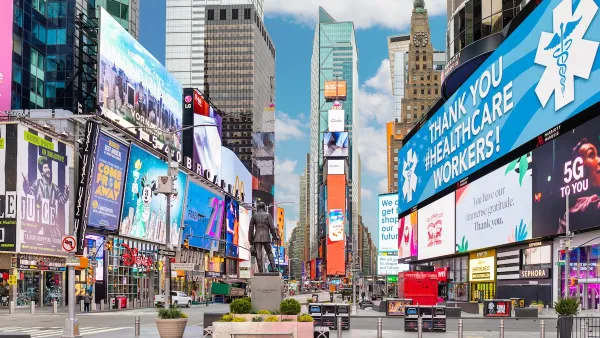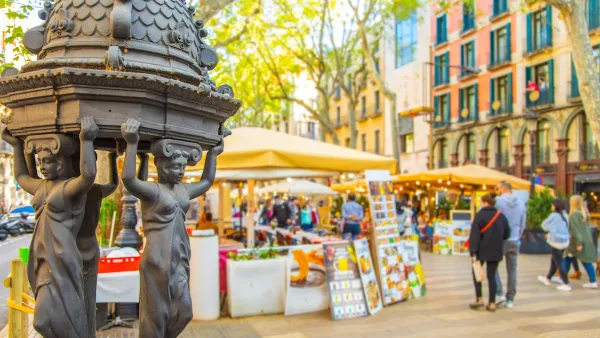Although the project has been hugely successful with local residents, the mayor and some county supervisors wanted to revert the road to vehicle use.

The "Great Walkway," a "pedestrian paradise" created in San Francisco during the pandemic, reopened to cars on August 16. An article written by Heather Knight describes the former 17-acre park, converted to a car-free promenade in April 2020, as "one of the few silver linings to emerge from the COVID-19 pandemic." Since then, "[a] city study found it was incredibly popular — drawing 126,000 visitors each month, including 3,240 each weekday," and 53% of respondents to a survey wanted the change to remain permanent. "The city also rightly responded to neighbors’ concerns about increased traffic on their streets, installing stop signs, speed humps and traffic diverters" on adjacent roads.
Now, in a surprise move that angered mobility advocates, the city's mayor and three county supervisors have "privately decided" to reopen the Great Highway to cars five days a week, citing concerns about access to schools. But "[i]n a city that has 1,200 miles of roads for cars, devoting a small fraction to pedestrians and bicyclists isn’t too much to ask," argues Knight. "If giving 2 miles of the Great Highway to people two days a week is a compromise, as the mayor says, that’s a strange definition."
Before the reopening, close to 600 residents gathered to protest the reopening of the street. The San Francisco Bicycle Coalition said in a statement that the organization "continues to firmly believe that the Great Highway should be a park and be car-free 24/7." Meanwhile, "three city residents on Tuesday planned to file a California Environmental Quality Act appeal in an attempt to block the return of the roadway to vehicles," arguing that putting cars–along with their polluting emissions–back on the street merits an environmental review.
FULL STORY: Sadly, S.F. getting ready to reopen Great Highway - a pedestrian 'paradise' during pandemic

Analysis: Cybertruck Fatality Rate Far Exceeds That of Ford Pinto
The Tesla Cybertruck was recalled seven times last year.

National Parks Layoffs Will Cause Communities to Lose Billions
Thousands of essential park workers were laid off this week, just before the busy spring break season.

Retro-silient?: America’s First “Eco-burb,” The Woodlands Turns 50
A master-planned community north of Houston offers lessons on green infrastructure and resilient design, but falls short of its founder’s lofty affordability and walkability goals.

Test News Post 1
This is a summary

Analysis: Cybertruck Fatality Rate Far Exceeds That of Ford Pinto
The Tesla Cybertruck was recalled seven times last year.

Test News Headline 46
Test for the image on the front page.
Urban Design for Planners 1: Software Tools
This six-course series explores essential urban design concepts using open source software and equips planners with the tools they need to participate fully in the urban design process.
Planning for Universal Design
Learn the tools for implementing Universal Design in planning regulations.
EMC Planning Group, Inc.
Planetizen
Planetizen
Mpact (formerly Rail~Volution)
Great Falls Development Authority, Inc.
HUDs Office of Policy Development and Research
NYU Wagner Graduate School of Public Service




























